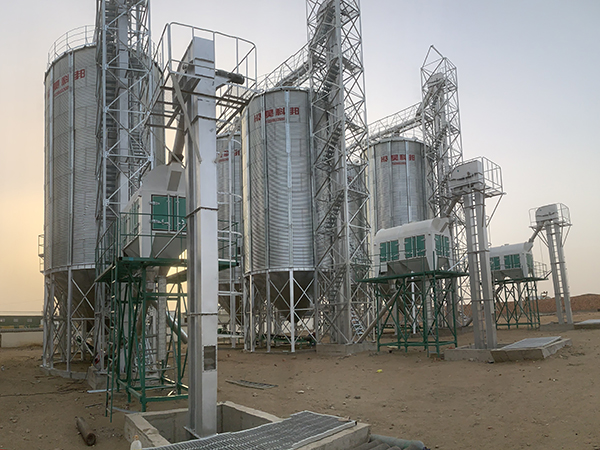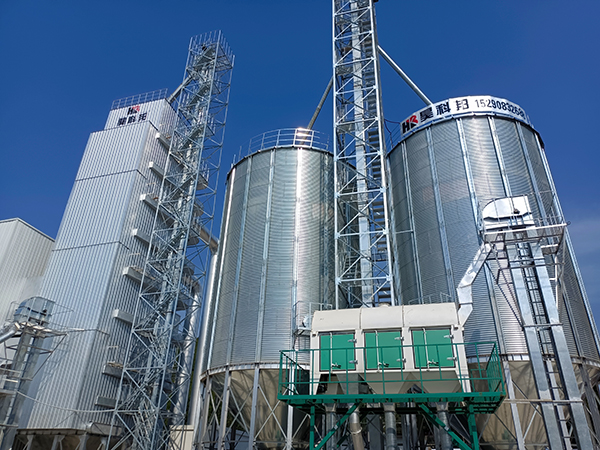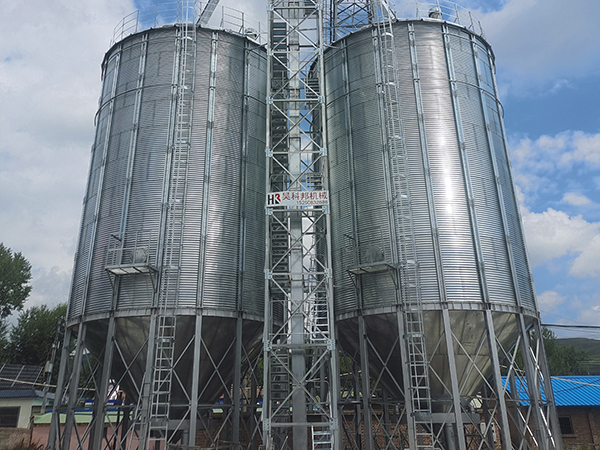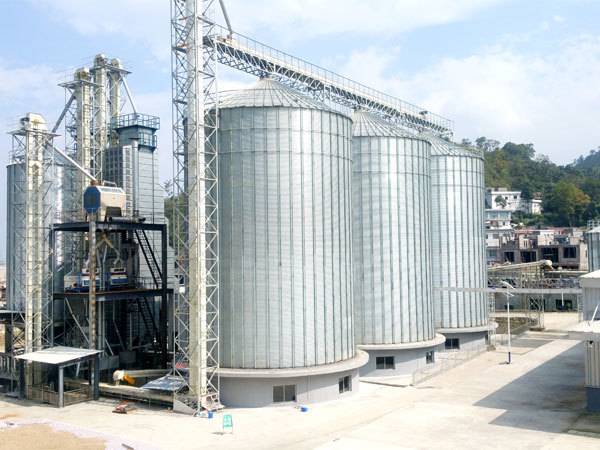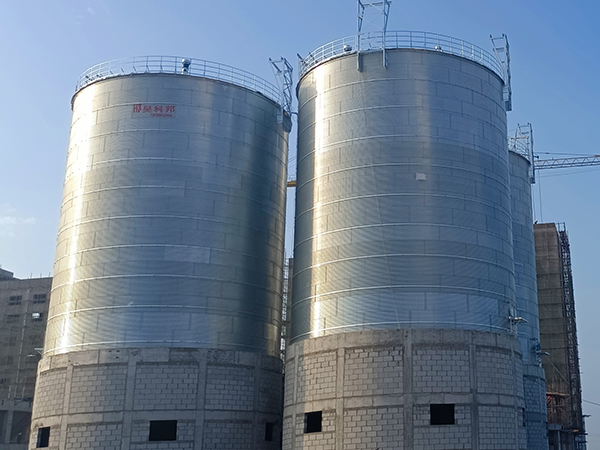peanut seed silo
A peanut seed silo is a storage facility specifically designed to store peanut seeds. These silos are typically cylindrical in shape to efficiently
peanut seed silo Introduction
A peanut seed silo is a storage facility specifically designed to store peanut seeds. These silos are typically cylindrical in shape to efficiently store large quantities of peanut seeds and provide protection against external factors such as moisture, pests, or other contaminants. The design of the silos usually takes into account the ventilation, moisture retention, and insulation needs of the seeds to ensure their quality and shelf life. In agricultural production, peanut seed silos are crucial facilities for ensuring seed quality and crop yield.
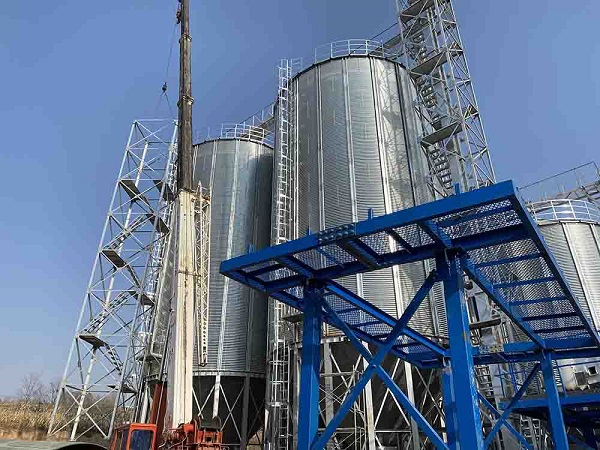
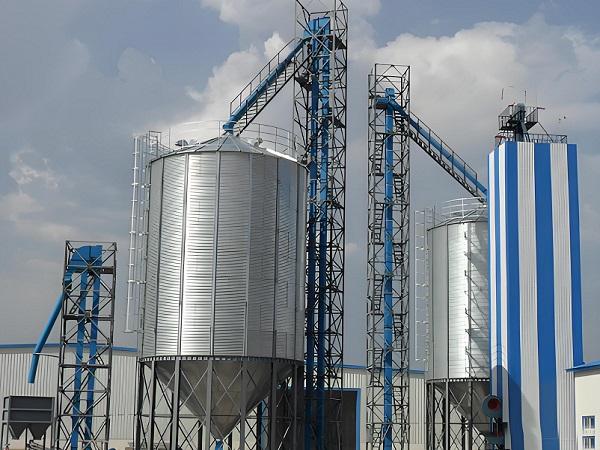
Peanut Seed Silo Features
Protective Performance
Designed to protect peanut seeds from moisture, pests, and other contaminants to ensure seed quality and shelf life.
Large Capacity
Silos typically have sufficient capacity to store large quantities of peanut seeds to meet agricultural production needs.
Ventilation System
Silos are usually equipped with ventilation systems to ensure proper airflow and maintain suitable temperature and humidity conditions for the seeds.
Durability
Peanut seed silo are often made of durable materials to withstand long-term use and environmental conditions.
Ease of Management
Designed to be simple and easy to manage, facilitating farmers in storing and retrieving seeds.
Sealing Performance
Silos typically have good sealing performance to prevent external moisture and other harmful substances from entering the silo.
Insulation Performance
Silos may have insulation functions to maintain appropriate temperatures conducive to seed preservation.
Cost-effectiveness
Peanut seed silo generally offer high cost-effectiveness, effectively improving the efficiency of seed storage and crop yield.
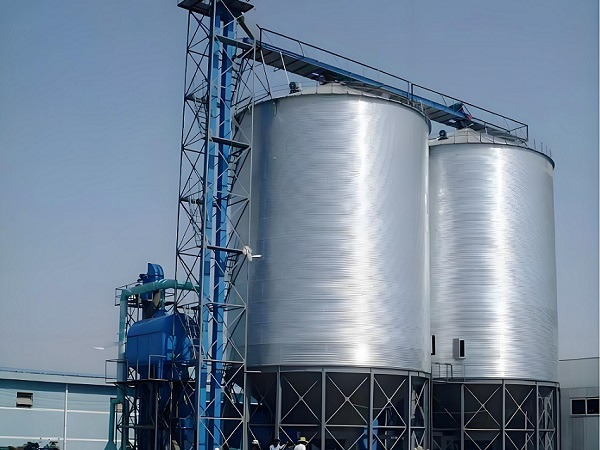
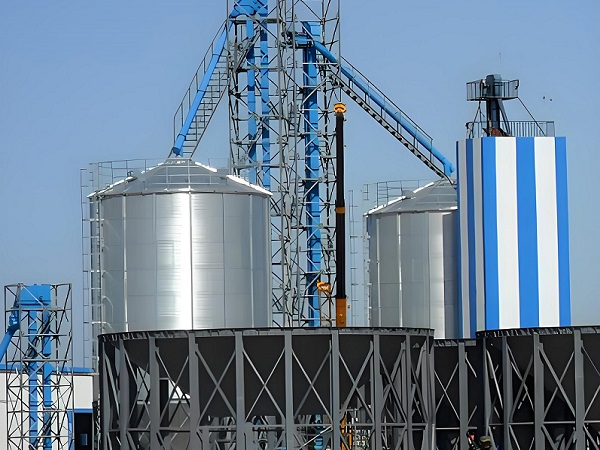
Peanut seed silo structure
Main Body Structure
The main body structure usually includes the silo walls, bottom, and top, forming the framework of the entire silo.
Ventilation System
This includes ventilation openings, ducts, and ventilation devices to ensure airflow within the silo, preventing the accumulation of mold and moisture.
Sealing System
Used to ensure the silo’s sealing performance, preventing external moisture and harmful substances from entering the silo. This may include doors, windows, sealing gaskets, and other components.
Discharge Equipment
Devices facilitating the removal of peanut seeds from the silo, typically including discharge openings, conveyors, and discharge valves.
Insulation Layer (Optional)
Used to maintain suitable temperature conditions conducive to seed preservation. This may include insulation materials or coatings.
Safety Equipment
Ensures safety during silo operation, such as fire prevention equipment, emergency stop devices, etc.
Accessories and Attachments
Such as ladders, platforms, lighting equipment, etc., facilitating the management and maintenance of the silo.
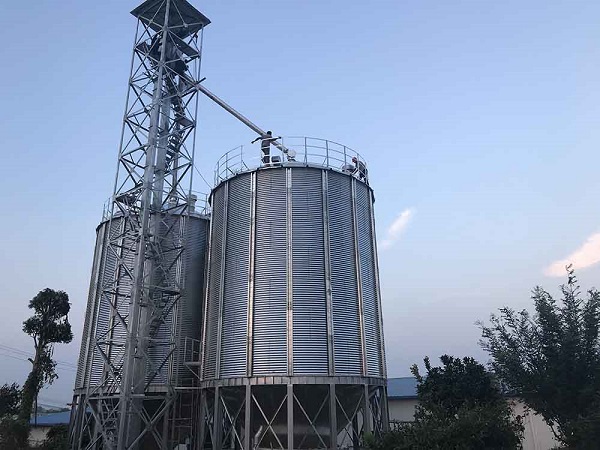
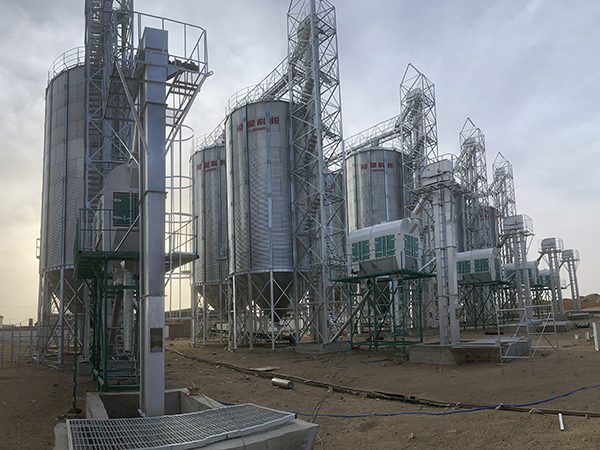
Peanut Seed Silo Advantages
Preservation of Seed Quality
Peanut seed silo effectively protect seeds from moisture, pests, and other contaminants, ensuring seed quality and shelf life.
Efficient Storage
The silo design allows for the efficient storage of large quantities of peanut seeds, meeting agricultural production needs.
Space Saving
Silos are typically designed in a cylindrical shape, maximizing space utilization while ensuring sealed storage of seeds.
Ventilation and Moisture Control
Equipped with ventilation systems, silos ensure airflow and provide appropriate humidity conditions, aiding in maintaining seed quality.
Ease of Management
Simple design facilitates easy management and maintenance, allowing farmers to conveniently store and retrieve seeds.
Cost-effectiveness
Peanut seed silo generally offer high cost-effectiveness, effectively improving the efficiency of seed storage and crop yield.
Versatility
Silos can be customized and modified as needed to meet seed storage requirements of different regions and scales of farms.
Reliability
Peanut seed silo are typically made of durable materials, providing high durability and reliability for long-term stable seed protection.
Application scope of Peanut seed silo
Coban Silo is widely used for grain storage such as wheat, corn, soybean, paddy, rice, soybean meal, barley, malt, sunflower seeds, rapeseed, peanuts, flour, and other powder materials, oat, special Silo, and seeds, etc.
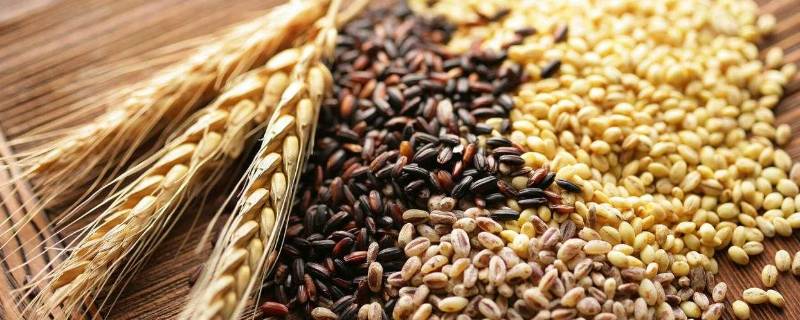
Peanut seed silo technical parameters
Scientifically speaking, the Silo capacity should be measured with volume (m3). Even in the same grain Silo, the storage tons will be different for different grains with different densities. The following table is calculated based on a Silo density of 0.75kg/m3, and surely HKB customizes Silo systems unique for you.
| Most Popular Hopper Bottom Steel Silo Technical Specifications | ||||||||
| Capacity | 50Ton | 100Ton | 150Ton | 200Ton | 300Ton | 500Ton | 1000Ton | 1500Ton |
| Model | TCZK
03605 |
TCZK
04507 |
TCZK
05507 |
TCZK
06406 |
TCZK
07307 |
TCZK
07313 |
TCZK
11010 |
TCZK
12811 |
| Diameter(m) | 3.667 | 4.584 | 5.500 | 6.417 | 7.334 | 7.334 | 11.000 | 12.834 |
| Total Height(m) | 9.56 | 12.53 | 13.25 | 12.85 | 14.70 | 21.42 | 20.95 | 23.51 |
| Volume(m³)
Density:0.75ton/m³ |
69 | 150 | 222 | 273 | 415 | 699 | 1346 | 2039 |
| Most Popular Flat Bottom Steel Silo Technical Specifications | ||||||||
| Capacity | 1000Ton | 1500Ton | 2000Ton | 2500Ton | 3000Ton | 5000Ton | 8000Ton | 10000Ton |
| Model | TCK
10014 |
TCK
11915 |
TCK
13715 |
TCK
15514 |
TCK
15518 |
TCK
18321 |
TCK
24718 |
TCK
25621 |
| Diameter(m) | 10.084 | 11.918 | 13.750 | 15.584 | 15.584 | 18.334 | 24.751 | 25.668 |
| Total Height(m) | 18.69 | 20.34 | 20.87 | 20.30 | 24.78 | 28.60 | 26.99 | 30.60 |
| Volume(m³)
Density: 0.75ton/m³ |
1335 | 2009 | 2701 | 2467 | 4145 | 6693 | 10879 | 13484 |

